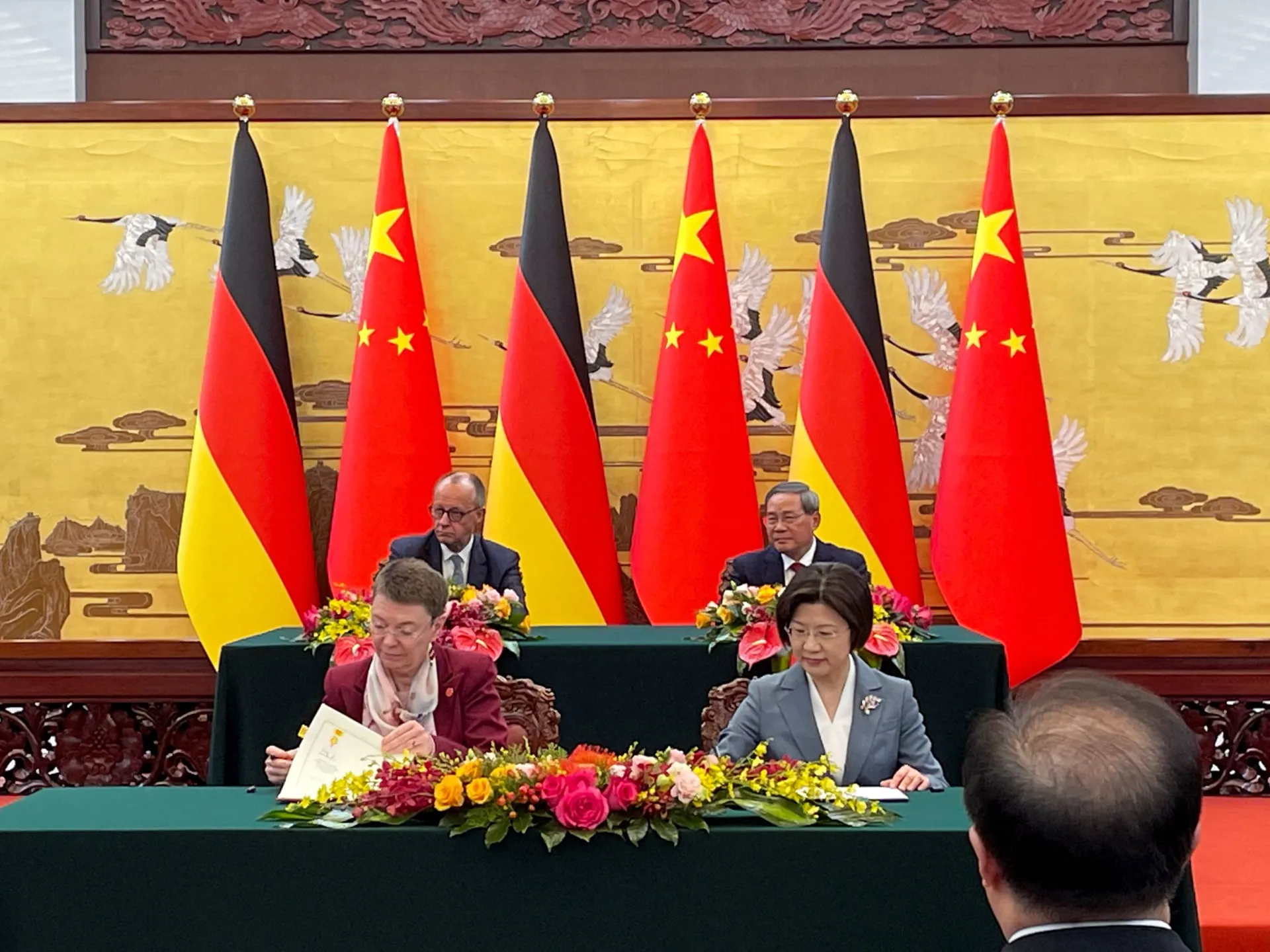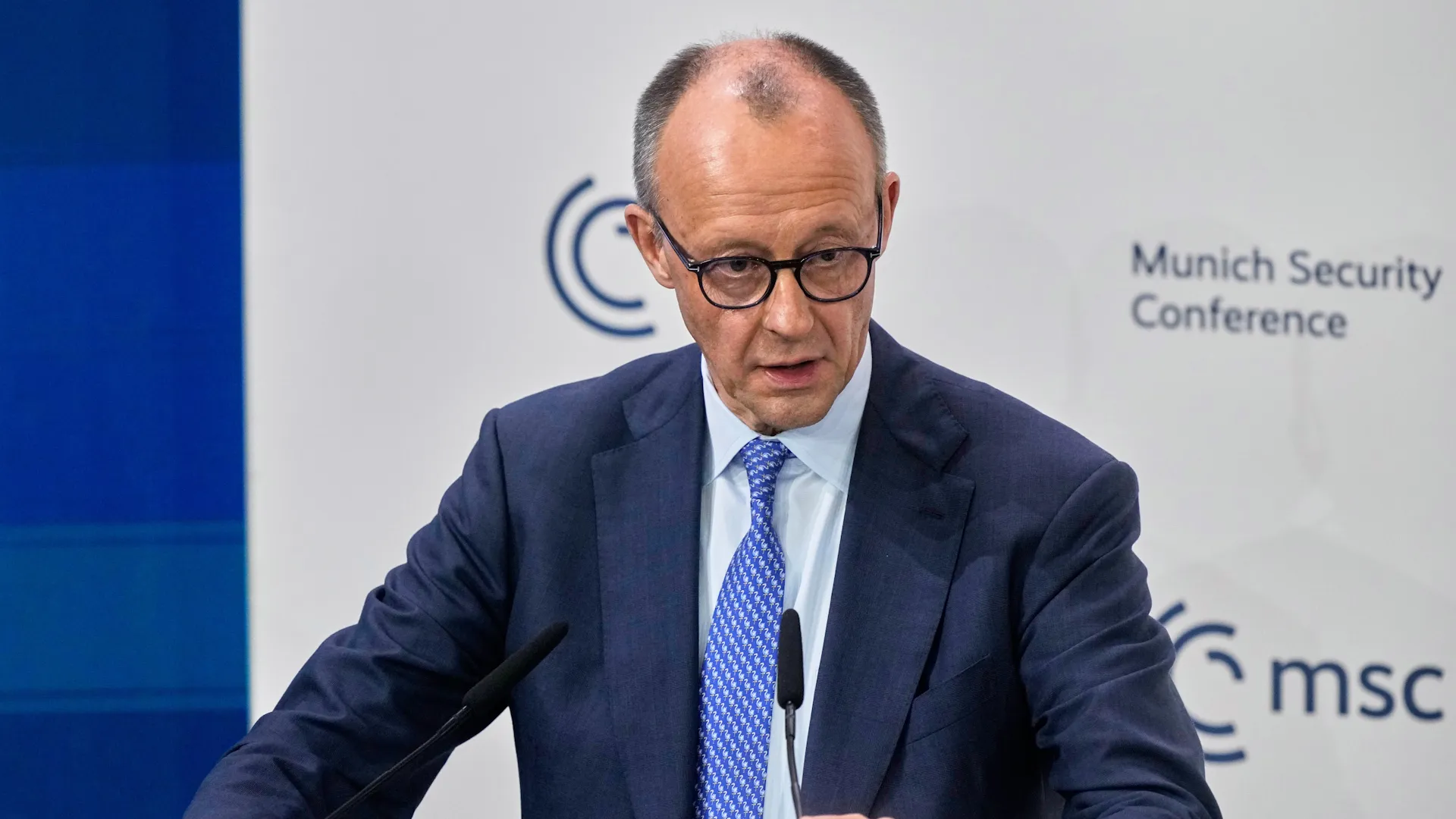Germany’s Merz eyes business opportunities at Chinese tech hub in Hangzhou | International Trade News
German Chancellor visits eastern city, home to AI firm DeepSeek and e-commerce giant Alibaba, with business leaders.
Published On 26 Feb 2026
German Chancellor Friedrich Merz has arrived in the tech hub of Hangzhou on the second day of his first official trip to China, flanked by a delegation of business leaders seeking contracts in the eastern city.
Merz travelled from Beijing to the city of some 12 million people on Thursday, where he was due to tour some leading companies, including Germany’s Siemens Energy and Unitree, a Chinese firm producing humanoid robots.
Recommended Stories
list of 4 itemsend of list
Hangzhou is a major hub in China’s tech sector, home to giants, including artificial intelligence company DeepSeek and e-commerce platform Alibaba.
Before leaving Beijing, Merz, who is being accompanied by a delegation, including executives of German car giants Volkswagen, BMW and Mercedes, visited a Mercedes plant in the Chinese capital where he tested a self-driving vehicle.
‘Improved’ trade relationship sought
Merz’s trip to China, which became Germany’s largest trading partner last year, seeks to deepen decades-old economic ties with the world’s second-largest economy in the wake of tariffs imposed by the United States last year.
But he has also sought to address “challenges” in the relationship, most notably tackling the massive imbalance which saw Germany’s trade deficit with China hit a record 89 billion euros ($105bn) last year, fuelling complaints from German businesses that Chinese competitors are flooding the market with cheaper goods.
In a meeting with Chinese Premier Li Qiang in Beijing on Wednesday, before he met Chinese President Xi Jinping, Merz said he wanted “to improve and make fair” the cooperation between the countries.
Following the talks with Xi and top Chinese leaders, Merz said China had agreed to buy up to 120 Airbus aircraft, and said other contracts were in the pipeline.
The two leaders stressed their commitment to developing closer strategic relations, with Xi telling Merz he was willing to take relations to “new levels”.
Ukraine, Taiwan discussed
The talks between Xi and Merz also touched on geopolitical issues, with the German leader saying any “reunification” with Taiwan, the self-ruled island China claims as its territory, must be done peacefully.
Merz also told reporters that he asked the Chinese government to use its influence with Russia to help end the war in Ukraine, amid frustrations among European leaders that Beijing was not doing enough to bring the war to an end.
“We know that signals from Beijing are taken very seriously in Moscow,” Merz said.
Following the meeting, the two countries released a joint statement saying they supported efforts to achieve a ceasefire and lasting peace in Ukraine, emphasising the importance of fair competition and mutual market access, and committing to resolving any concerns through dialogue, Chinese state media reported.
Merz is the latest in a string of Western leaders to visit Beijing in recent months, including the United Kingdom Prime Minister Keir Starmer, French President Emmanuel Macron and Canadian PM Mark Carney, amid the fallout from the Trump administration’s tariffs on long-established trade partners.



